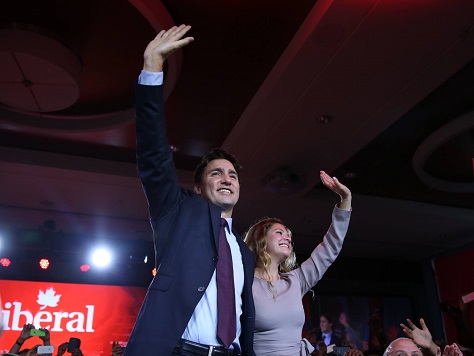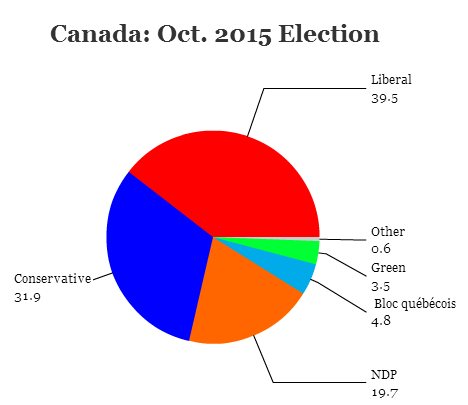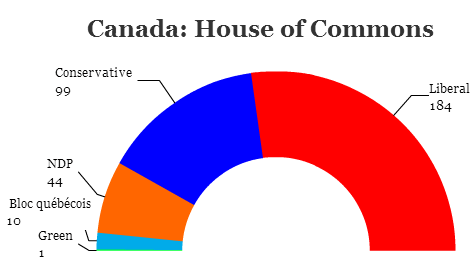Defying expectations in August that pitted the Liberal Party in third place at the beginning of the election campaign in August, Justin Trudeau has now won a clear majority government and a mandate for change in Canada’s 42nd federal election.![]()
So what does that mean for Canada, for US-Canadian relations and for Canada’s role in the world in the weeks and months ahead?
Here are nine policy areas to keep an eye on as Trudeau begins the rapid transition to 24 Sussex Drive, appoints a cabinet and tackles a full agenda of issues that could dominate what will likely be a full four-year term with the kind of parliamentary mandate that should make it much more easier than Trudeau ever expected to enact his policy preferences.
Climate change. As the Paris summit on climate change approaches in November, Canada’s government will go from being one of the most skeptical participants at the conference to one of the most enthusiastic supporters of action to reduce carbon emissions. Keep an eye on Stéphane Dion, the former Liberal leader from 2006 and 2008 and a former environmental minister, to play a vocal and supportive role. Nevertheless, global climate change policy is mostly set by the G-2 — i.e., the United States and China. So Trudeau’s role at the summit, while productive, will be more about style than any actual substance. Joyce Murray, a popular left-wing MP and British Columbia’s former environmental minister, who was the runner-up to Trudeau in the 2013 Liberal contest, is also a rising star to watch on environmental matters.
Economic policy. At the start of the campaign, the traditionally more centrist Liberals advanced a tax policy to the left of the New Democratic Party (NDP) by promising a middle-class tax cut to be paid for by slightly higher taxes on those who earn roughly more $200,000 annually. During the campaign, as Canada officially slipped into a shallow recession, Trudeau doubled-down by pledging to engage in deficit spending over the next three years to stabilize Canada’s economy, protect jobs and boost infrastructure. It was this move, again outflanking the NDP (whose leader Thomas Mulcair promised to maintain the Conservative Party’s devotion to balanced budgets), that may have convinced voters that Trudeau, and not Mulcair, represented the most striking contrast with Conservative prime minister Stephen Harper.
Ralph Goodale, a former finance minister under Paul Martin; Bill Morneau, a 52-year-old newcomer first elected last night from the Toronto’s business world and Scott Brison, a former Progressive Conservative MP who defected to the Liberals over a decade ago, could all be leading contenders for finance minister. Continue reading Nine things to watch as Canada’s next Trudeau era begins


